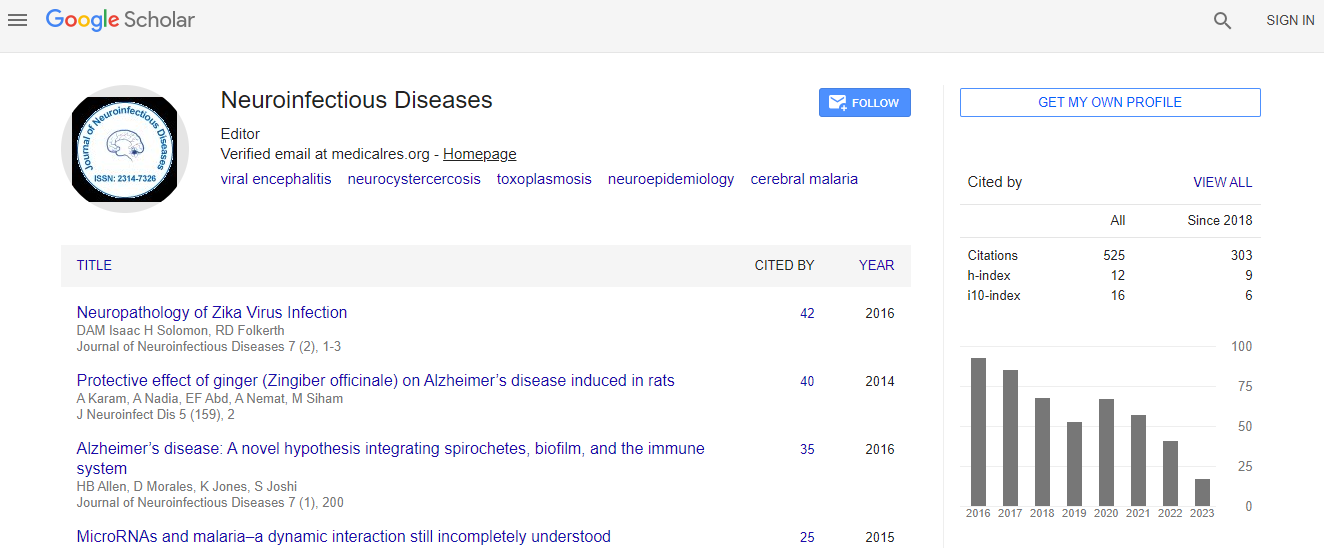Review Article
Trypanosoma cruzi-Derived Neurotrophic Factor: Role in Neural Repair and Neuroprotection
Marina V. Chuenkova* and Mercio PereiraPerrin
Department of Pathology, Tufts University School of Medicine, 150 Harrison Avenue, Boston, MA 02111, USA
- *Corresponding Author:
- Marina V. Chuenkova
Department of Pathology, Tufts University School of Medicine, 150 Harrison Avenue, Boston, MA 02111, USA
E-mail: marina.chuenkova@tufts.edu
Received Date: 3 June 2010; Revised Date: 8 July 2010; Accepted Date: 26 July 2010
Abstract
Some patients infected with the parasite Try-panosoma cruzi develop chronic Chagas’ disease, whileothers remain asymptomatic for life. Although pathological mechanisms that govern disease progression remain unclear, the balance between degeneration and regeneration in the peripheral nervous system seems to contribute to the different clinical outcomes. This review focuses on certain new aspects of host-parasite interactions related to regeneration in the host nervous system induced by the trans-sialidase of T. cruzi, also known as a parasite-derived neurotrophic factor (PDNF). PDNF plays multiple roles in T. cruzi infection, ranging from immunosuppression to functional mimicry of mammalian neurotrophic factors and inhibition of apoptosis. PDNF affinity to neurotrophin Trk receptors provide sustained activation of cellular survival mechanisms resulting in neuroprotection and neuronal repair, resistance to cytotoxic insults and enhancement of neuritogenesis. Such unique PDNF-elicited regenerative responses likely prolong parasite persistence in infected tissues while reducing neuropathology in Chagas’ disease.

 Spanish
Spanish  Chinese
Chinese  Russian
Russian  German
German  French
French  Japanese
Japanese  Portuguese
Portuguese  Hindi
Hindi 
